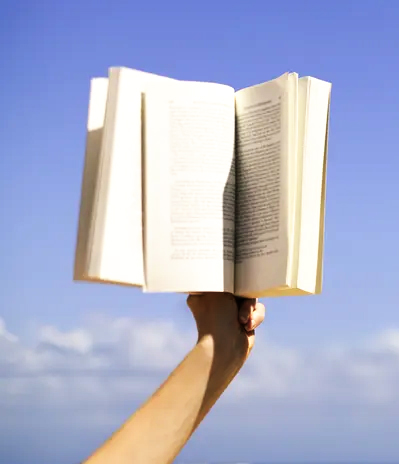My philosophy
I have always believed that good writing and clear communication can change the world. I believe literacy is the most valuable tool we have in this age of information. And I further believe world literacy must be viewed as achievable, and one of the highest goals to which we can aspire.
Clear communication
With these lofty ideas in mind, I set out to become an editor—to play a small part in both sustaining and developing the human race’s gift of language and the written word. While I didn’t aspire to change the world single-handedly with words, helping to create well-written stories and communications one document at a time was an achievable goal for me and a good place to begin.
The ability to communicate with complex language systems is the greatest triumph of the human race. There are about 6,800 languages currently alive in the world, and hundreds of them have a written orthography, although the exact number of written languages is not known. This remarkable ability uniquely distinguishes us from the other one and a half million species on our planet. Furthermore, English—a mongrel language culling its words from many other cultures—is now the world’s third most natively used language and most popular second language, and this growth continues as millions of people learn ESL for business, technology, science, medicine, and other fields that require global communications.
Written language is indeed a unique human gift. Yet how we take this singularly astonishing feat for granted! Rarely do we pause to consider the far-reaching implications of inventing, reinventing, tampering, tinkering, mangling, and often strangling our precious gift. While it is true that all languages are always evolving, they do so within a particular set of parameters and rules, and if we don’t or can’t follow those rules, chaos ensues and communication breaks down.
Would you like your prose to inspire pause and reflection? Are you striving to express ideas that will linger in your readers’ memories? Are you hoping to convince, persuade, influence, and change minds? Do you wish to awaken new ideas in your readers? I will help to untangle your words, give them more elegance, clarity, and substance—and make them memorable.
Sparkling prose
I have often been asked why I’m not a writer. The answer is, of course, that I am a writer. One cannot be an editor without first having mastered the art of writing. But I also have a knack—really a kind of gift—for examining a manuscript and envisioning an improved structure for it, whether at sentence, paragraph, or document level. In truth, my greatest fulfillment comes not from writing original material, but from using these skills to polish others’ prose.
Good writing is an art. Good writing requires a mixture of sharp wit, childlike curiosity, and an unfettered imagination. Self-discipline is paramount. An understanding of human nature, a measure of tempered cynicism, and sense of the ironic don’t hurt either. A writer can be exquisitely talented in all these areas without having all the necessary tools of grammar at his or her command.
Good editing is at once an art, a craft, and a science. A good editor recognizes all of the foregoing qualities and, using the standard and often intricate rules of English and the guidelines of document and grammatical structure, identifies how to polish them without blunting the creative edges.
I will make your words sparkle!
